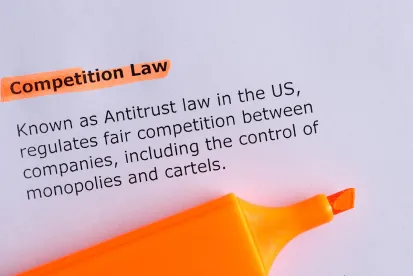On January 5, 2023, the Federal Trade Commission (FTC) issued a Notice of Proposed Rulemaking that would prohibit the use by employers of non-compete clauses, agreement terms that have the effect of imposing a non-competition obligation and would preempt all state laws that provide less protection than the proposed rule. This change would require the undoing of existing restrictive provisions with employees, with notice of the relief from compliance (with certain limited exceptions in business purchase agreements).
The proposed rule looks to ban all use of non-compete provisions with “workers,” whether paid or unpaid. Under the proposed rule, the term “worker” includes employees, independent contractors, apprentices, externs, interns, volunteers, and sole proprietors who provide a service to a client or customer. For a term to be violative of the FTC rule, if finalized, the provision would need to have the effect of prohibiting the worker from seeking or accepting employment. This includes terms under a non-competition agreement as well as a non-disclosure (confidentiality) agreement and the recoupment of training costs unless tied to the actual costs of training the employee.
The intention of the FTC rule is to apply to existing and prospective non-compete agreements as well as any contractual provision that prevents a worker from seeking or accepting employment or operating a business after leaving an employer. Employers would also be prohibited from representing to employees that they are subject to a non-compete agreement. While the rule would not call out a ban on non-disclosure, confidentiality or non-solicitation agreements, the rule could apply to the terms of such agreements if the non-disclosure or non-solicitation agreements are broad enough to prohibit a worker from working in the same field in the future. While alternative formation of restrictions under non-competition agreements in certain states (such as California) have been a way to address the issue without violating the law, the FTC rule does not look at the “name” of the agreement for operation of the restriction but rather the practical implications of the term on employee employment opportunities. The proposed rule would not apply to franchisee-franchisor agreements or agreements between buyers and sellers of a business, which remain subject to antitrust law.
Under the finalized rule, employers would also be required to rescind all existing non-compete agreements/provisions. Within 45 days of rescinding the non-compete provisions, employers must inform current and former workers, in an individualized written communication, that the agreement is no longer in effect and will not be enforced.
Legal challenges to the proposed rule are expected, with the U.S. Chamber of Commerce already signaling that it is evaluating the commencement of a lawsuit to foreclose the FTC effort. The public may submit comments to the FTC on the proposed rule by March 6, 2023 (within 60 days after the publication of the proposed rule in the Federal Register). A final rule will not likely be issued until late 2023 or 2024.
Proactive Steps for Employers
While all current non-compete agreements remain in effect, employers may want to consider the following actions to ensure present and future compliance with applicable laws and rules:
-
Review non-compete agreements and provisions for compliance with current state laws which may have recently changed;
-
Ensure agreements are reasonably tailored (as to scope of restriction and target group for the restriction) to protect legitimate business interests and reasonable as to time and geographic scope;
-
Review current non-compete agreements to ensure they are drafted to address the particular circumstances of the employment relationship;
-
Create separate restrictive provisions that go to “preservation of knowledge and information” rather than employment based restrictions;
-
Consult state laws, and other applicable authorities, for limitations on the use of non-compete agreements and other restrictive employment terms post-employment for certain categories of workers.
Employers may find it useful to confer with experienced labor and employment counsel in order to maximize compliance and reduce the potential for legal exposure.



 />i
/>i

